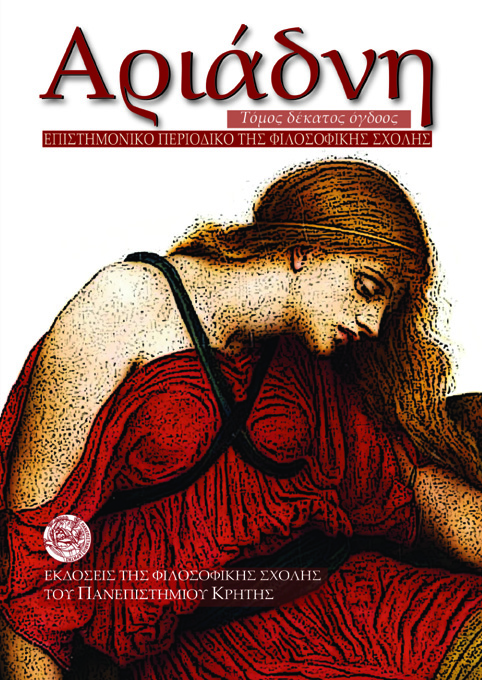H φυσική ιστορία του πολιτισμού στον Σκωτικό διαφωτισμό
DOI:
https://doi.org/10.26248/ariadne.v18i0.369Περίληψη
SCOTTISH Conjectural Histories represented an important genre of historical writing in Britain during the 18th century. The expression ‘conjectural history’ was coined by Dugald Stewart. Unlike other uses of conjecture to complete philosophical history, in the Scottish histories conjecture means naturalistic explanation rather than theological speculation. Most importantly, natural is referring to the gradual, ‘by stages’ transition from savagery to civilisation, pace the abrupt transition from the state of nature to the civil society in the social contract narratives of civil society. This typical transition traditionally depicted in the four stages schemes – nations of hunters-gatherers, shepherds, farmers and commercial-minded people – is supposedly followed by all mankind notwithstanding unusual environmental factors that can prevent it from occurring. Conjectural narratives also involve systematical speculation that dismisses the miraculous and the extraordinary in order to set up holistic forms of interdependence between institutions and practices as an explanatory frame in a given society of a period. Therefore the notion of progress is considered less as a triumphal march of the European civilisation and more through fi ne-grained theoretical tools, especially as it applies to the civilizing process of the internal ‘savage’ of Scottish Highlands.
Λήψεις
Δημοσίευση
Πώς να δημιουργήσετε Αναφορές
Τεύχος
Ενότητα
Άδεια
Οι εργασίες που δημοσιεύονται στο περιοδικό μπορούν να χρησιμοποιηθούν ελεύθερα για μη-εμπορικούς σκοπούς με την προϋπόθεση ότι γίνεται αναφορά στους συγγραφείς και την πρώτη δημοσίευση. Στην περίπτωση που το άρθρο αλλοιωθεί, τροποποιηθεί ή δημιουργηθεί κάτι νέο βασισμένο στο αρχικό, το έργο που θα προκύψει θα μπορεί να διανεμηθεί μόνο με την ίδια ή παρόμοια άδεια (Creative Commons Attribution-NonCommercial-ShareAlike 4.0 International License).


